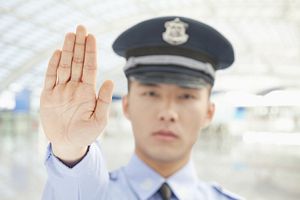This week’s round-up of China news you may have missed…
China has deported a group of 20 tourists – ten from South Africa, nine from the U.K., and one from India – after accusing them of “watching propaganda videos in their hotel room,” according to South Africa’s Rand Daily Mail. The group was in China for a 47 day tour when all 20 were arrested on the morning of July 10 at Erdos Airport in Inner Mongolia. According to a statement from Gift of the Givers Foundation, “No reasons were given for the arrest; cellphones were confiscated, there was no access to the embassies of origin nor to their families.” It wasn’t for another 48 hours, when the tour operator went searching for the group, that anyone knew the tourists had been detained.
Chinese authorities agreed to release (and deport) 11 of the 20 on July 14; the remaining nine were still being detained, with the possibility of having charges filed against them. However, Reuters reported today that the final five South Africans, three Britons, and one Indian will also be sent home. Throughout, Chinese authorities have been tight-lipped about what crime the tourists were suspected of committing; according to Gift of the Givers, their offense was [sic] “that some members were linked to a terror group, to a banned organization, to watching propaganda videos in their hotel room.” A spokesperson for South Africa’s Department of International Relations and Cooperation told Reuters that the remaining South Africans would leave China on Saturday. He added that the Chinese government had never clarified why the group was detained in the first place.
The case attracted international attention thanks to the timing: even while 10 South Africans were being detained without explanation in Inner Mongolia, Chinese leaders were hosting South Africa’s deputy president, Cyril Ramaphosa, in China. According to a statement from the South African Presidency, “Deputy President Ramaphosa was visiting the Peoples Republic of China with specific reference to economic and trade matters and to study how state-owned enterprises can be utilized to promote economic growth and address challenges of poverty and unemployment in South Africa.” He met with Chinese Premier Li Keqiang and Vice President Li Yuanchao, spoke at a business forum, and visited Chinese SOEs.
In other China news, People’s Daily has a “roadmap” of state-owned enterprise (SOE) participation in the “Belt and Road” initiative, based on data from the State-owned Assets Supervision and Administration Commission. The article notes the SOEs “are undertaking great responsibilities” in building infrastructure (including oil and gas pipelines and railway construction) on the planned routes. It’s part of an overall push by these state-owned companies to go global: “the total amount of overseas assets of Chinese state-owned enterprises has risen from 2.7 trillion yuan [$434 billion] to 4.6 trillion yuan [$740 billion]” since 2011.
China Daily offers up a profile of three Muslims from across China, including how they are celebrating Ramadan. The subjects include Yang Jie, a “fashionable” imam in the Hui autonomous prefecture of Changji; Ablikim Tursun, “a happy naan maker” in Kami city in Xinjiang; Akbar Salay, a football coach in Artux city (also in Xinjiang); and Maytursun Maysadi, a “peasant” in Yuntian county in Xinjiang. Each of the stories emphasizes the hope for a better economic life, shared by all four men. While hardly representative, the short profiles provide a clear picture of how China wants to portray its Muslim population.
Despite the headline, however (“A day in the life of Muslims during Ramadan in NW China”) there are few mentions of how the men are actually observing the holy month. China has come under fire for restricting fasting, a traditional way of observing Ramadan, at schools and government offices in Xinjiang.
Speaking of China and religion, the Dalai Lama poked fun at China’s recent proclamations on the process of reincarnation in an interview with The New York Times’ Nicholas Kristof. “The Chinese Communist Party is pretending that they know more about the reincarnation system than the Dalai Lama,” he told Kristof, referencing Beijing’s recent insistence that “the reincarnation of the Dalai Lama should also abide by religious rituals, historical conventions and domestic laws and regulations” – including the “Regulations on Religious Affairs and the Rules on the Management of Reincarnation of Tibetan Living Buddhas enacted by the Chinese government.” The Dalai Lama has previously suggested that he may not reincarnate again; he suggested to Kristof that the question would be resolved in time for his 90th birthday (ten years from now).

































